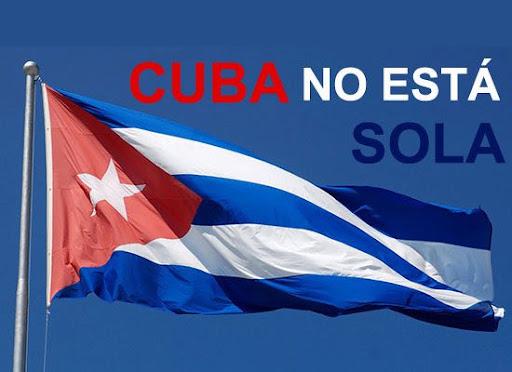Noting that Cuba and the members of CARICOM developed a very friendly, respectful and productive relationship for years, he called on Washington to lift the economic, financial and commercial blockade that it has imposed on Cuba for more than six decades.
He noted that CARICOM continues to communicate with Washington “to tell them… look, this blockade is counterproductive, not only for Cuba, but for all of us. Please, lift it!”
Shortly after attending the recent “New Operation Truth” international conference in Havana, organized by Prensa Latina, Comissiong was interviewed here by Teshia Hinds on the popular television program “Mornin’ Barbados”, on which he referred to the cooperation agreements of Cuba with Barbados and with CARICOM.
We have tried everything, including a private collective letter from our heads of Government to President Joe Biden, explaining in a very rational and reasonable way why this blockade is anachronistic and why it must disappear, he explained.
In addition, we vote every year at the United Nations General Assembly in favor of the resolution that condemns the blockade and, every time we have the opportunity to exchange with American diplomats, in any forum, we insist on it.
“We have to redouble our efforts to have these mutually beneficial relations with Cuba and somehow find ways around the blockade,” he said. “We try anyway, because a central principle of CARICOM’s foreign policy is solidarity with Cuba.”
He recalled that each of the independent CARICOM countries has an embassy in Cuba and, likewise, Cuba has an embassy in each of those countries. That’s unique. You don’t find that kind of relationship with any other country, he pointed out.
Comissiong chairs a task force – with an agenda of 10 areas – created by a Barbados-Cuba Cooperation Agreement, after the Cuba-CARICOM Summit in 2022, a space in which the heads of Government meet every three years.
He pointed out that this agreement includes cooperation in education, tourism, health care, sports and agriculture, and highlighted special interest in biotechnology.
During his stay in Cuba, he visited the Center for Genetic Engineering and Biotechnology (CIGB), which he described as one of the pioneer institutions in the development of certain cutting-edge medications, such as Heberprot-P to treat diabetic foot ulcers, a situation that affects many Barbadians.
Comissiong explained, however, that the US blockade affects the registration of that medicine in his country.
That is the kind of power that we have in the Caribbean. However, much of Cuba’s potential is being held back because they have to fight all these US sanctions, he regretted.
 Escambray ENGLISH EDITION
Escambray ENGLISH EDITION





Escambray reserves the right to publish comments.